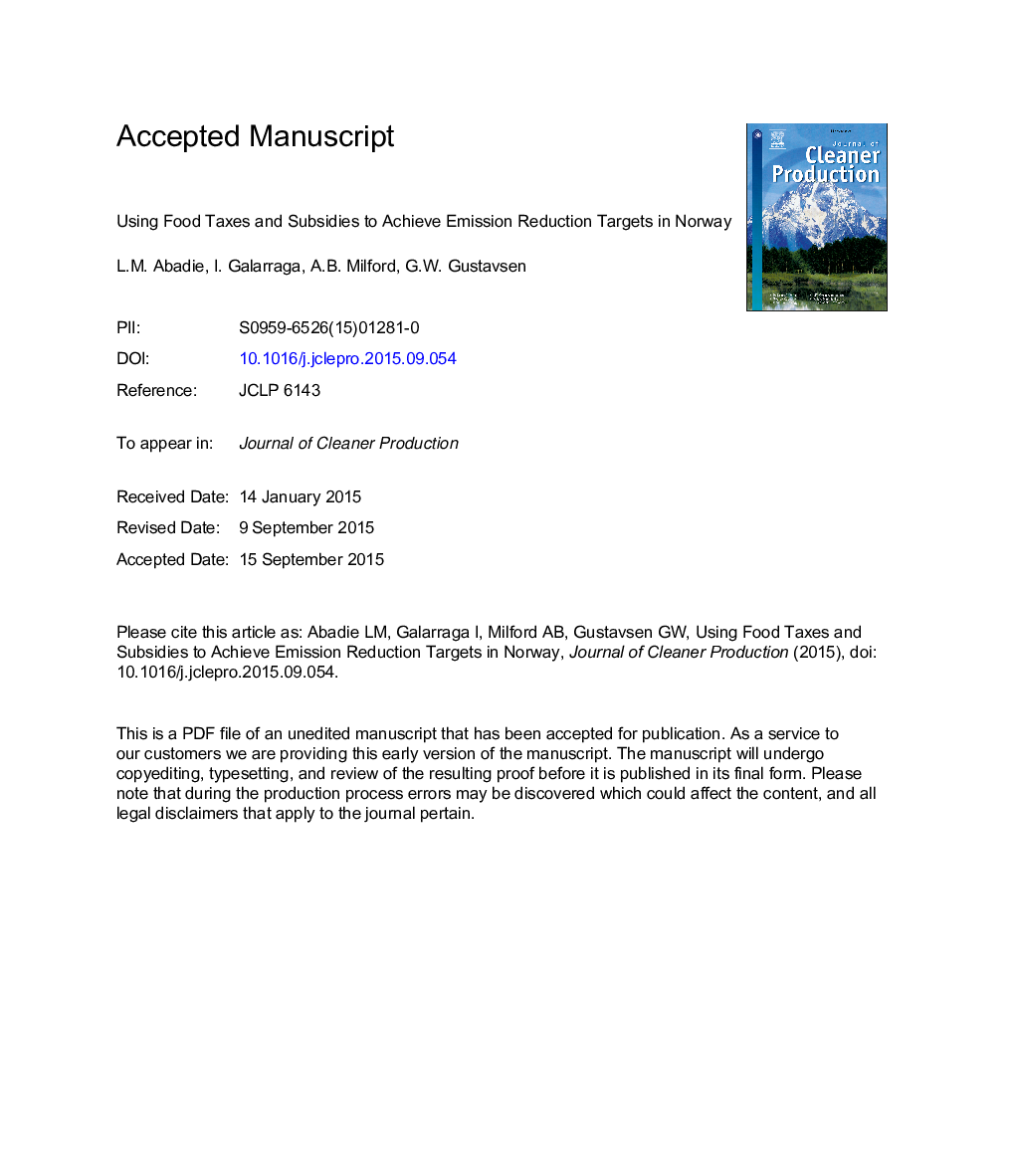| کد مقاله | کد نشریه | سال انتشار | مقاله انگلیسی | نسخه تمام متن |
|---|---|---|---|---|
| 10687791 | 1017948 | 2016 | 37 صفحه PDF | دانلود رایگان |
عنوان انگلیسی مقاله ISI
Using food taxes and subsidies to achieve emission reduction targets in Norway
ترجمه فارسی عنوان
استفاده از مالیات و یارانه های مواد غذایی برای دستیابی به اهداف کاهش انتشار در نروژ
دانلود مقاله + سفارش ترجمه
دانلود مقاله ISI انگلیسی
رایگان برای ایرانیان
کلمات کلیدی
موضوعات مرتبط
مهندسی و علوم پایه
مهندسی انرژی
انرژی های تجدید پذیر، توسعه پایدار و محیط زیست
چکیده انگلیسی
Food production contributes considerably to global greenhouse gas (GHG) emissions. Animal products - particularly meat from ruminants - generally have higher GHG emissions than plant products. Over the last few decades the global per capita consumption of animal products has increased. This has a negative impact on climate change, land and water availability, and human health. We are faced with the two-fold challenge of reducing GHG emissions while still producing enough food for our growing population. Part of the solution could be for consumers to change towards a more sustainable diet. In this paper we take Norway as a case study for estimating optimal taxes and subsidies on different food items which can change consumption patterns in order to reduce the GHG emissions derived from the average Norwegian diet. In the estimate we ensure that the average calorie intake with the new diet remains the same as with the current diet, and factor in other health considerations. Our findings suggest that limited but useful emission reduction targets can be set with only a few changes in diets. The methodology presented in this paper may be used to estimate optimal climate taxes and subsidies under different emission, quantities, taxes, subsidies, and health constraints.
ناشر
Database: Elsevier - ScienceDirect (ساینس دایرکت)
Journal: Journal of Cleaner Production - Volume 134, Part A, 15 October 2016, Pages 280-297
Journal: Journal of Cleaner Production - Volume 134, Part A, 15 October 2016, Pages 280-297
نویسندگان
L.M. Abadie, I. Galarraga, A.B. Milford, G.W. Gustavsen,
